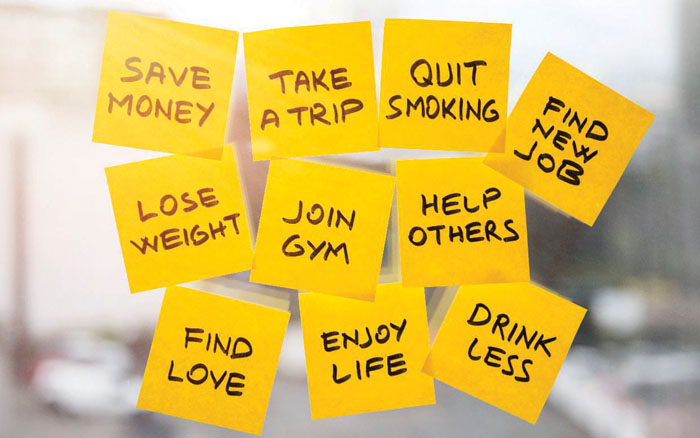Keeping resolutions is tough — some tips
Published 12:00 am Friday, January 5, 2018

- To keep your resolutions, start with smaller steps.
Happy New Year! We officially welcomed 2018 on Monday and many people are focused on those resolutions — x, y and z.
New Year’s resolutions, derided though they often are, present a big opportunity for self-improvement according to research on human behavior. On New Year’s, we look back on past failures and feel an uncommon surge of optimism. We rationalize that it was “the old me” who failed to change, but this year will be different. According to The Washington Post, 40 percent of Americans make New Year’s resolutions, as they strive to break old habits or at least start good ones.
But how many will actually keep those resolutions? According to an article in last year’s Huffington Post, only 8 percent of people actually keep their New Year’s resolutions. Now, I’m not telling you this to give you an excuse to give up, but I do want you to consider a few things.
We all have done this, and the biggest problem is that we set our goals too high when it comes to setting New Year’s resolutions. Most people shoot for the moon. We tell ourselves that this will be the year we’ll give up carbs, go running every morning, become a vegan or quit drinking sodas. Inevitably, three weeks later we find ourselves right back where we started. What gives?
When it comes to health goals, in particular, all-or-nothing goals ― which are usually based on unrealistic expectations and don’t leave any wiggle room ― are a setup for failure. Start with small, incremental lifestyle changes; they have a much greater chance of creating real change.
If you have set your resolution to STOP whatever it is, you may want to consider modifying it; it could make the difference in your giving up in February vs. you creating a lasting lifestyle change. When resolutions are too ambitious, we struggle to change our habits, become discouraged when we fail, and ultimately give up altogether.
So, instead of making hardline resolutions this year, Dr. Roberta Anding suggests increasing your chances for longterm success by approaching your health goals as a “reset.” Anding, a registered dietitian and nutrition professor at Baylor College of Medicine, also encourages that whatever you decide to commit to, the important thing is to use the energy of the New Year as an opportunity to make important changes for your health.
When setting goals for a new year, make them health-related, Anding said. “This is your most important 401K: investing in your body and your sense of well-being.”
So, if you are as determined to be successful this year at making some lifestyle changes as I am, let’s take a step back, reevaluate our goals, put in a little wiggle room, start fresh each day, celebrate the small successes, and DON’T give up. We’ll get there. Let’s strive to make 2018 the absolute best year we can. Now, get to it!
Here are a few sites that give suggestions for keeping your resolutions:
https://www.nytimes.com/
Toi N. Degree, Family & Consumer Education Agent with North Carolina State University & North Carolina Cooperative Extension. Toi may be reached at 704-216-8970 or by email: toi_degree@ncsu.edu.




